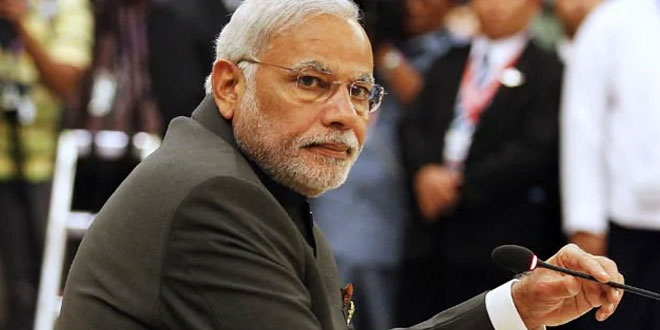New Delhi: In the second edition of Prime Minister Narendra Modi’s Mann Ki Baat on Sunday, since his re-election, he lauded the efforts of countrymen for the success of Swachh Bharat Abhiyan and said that now it is time to advance from cleanliness towards beautification. He added, “A journey that began five years ago gathered momentum with mass participation and is now setting up newer benchmarks in cleanliness and sanitation. It is not that we have reached the ideal yet, but the way we have achieved success in ODF and clean public spaces, it displays the collective will and strength of the resolve of a hundred and thirty crore countrymen. But we are not stopping at that. This movement has now advanced from cleanliness towards beautification.”
Also Read: Swachh Bharat Mission Has Become A Success Story Across The World: PM Narendra Modi On Mann Ki Baat
Sharing the successful journey of an engineer Yogesh Saini who returned from the US and became involved in street art with an aim to beautify public spaces, PM Modi said,
A few days ago, I was watching the story of Yogesh Saini and his team. He is an engineer who left his job in America and returned to serve Mother India. Recently, he picked up the gloves to not just clean up Delhi, but to beautify it. With his team, he began with the garbage bins of Lodi Garden. Through the medium of street art, he has decorated many localities of Delhi with aesthetically appealing paintings. From over bridges to school walls to hutments he gave a free hand to his talent, garnering huge public support on the way, on the lines of an effective campaign.
PM Modi further added,
Remember how, during the Kumbh, Prayagraj was decorated with street paintings! I came to know that Yogesh Saini and his team played a stellar role in it. Colours and lines may be mute, but when they merge to form a picture, the rainbow that emerges speaks louder than a thousand words.
Urging people to move towards a better India now through beautification process, PM Modi added,
It is imperative that the culture of transforming waste to wealth develops in our society. In a way, we have to move ahead on the path of converting garbage to gold.
In the same programme, PM Modi also touched upon the topic of water crisis in the country and stressed on the need for water conservation. He highlighted the efforts being made across the nation to conserve water and hailed the zeal of all who have taken the baton to spread awareness in the connection. He said, “The North Eastern State of Meghalaya has become the first state to have formulated its own water-policy. I congratulate the Meghalaya government.”
Also Read: Prime Minister Narendra Modi Discusses Water Crisis On Mann Ki Baat, Urges Citizens To Save Water
He also congratulated the Haryana government for encouraging people to undertake cultivation of less water-intensive crops. He added, “In Haryana, crops that require meagre water are being encouraged. Farmers thus are saved from suffering losses. I especially congratulate the Haryana Government for establishing a connection with the farmers to wean them away from conventional modes of farming towards crops that do not require much water.”
Further, on water conservation, PM Modi signed off,
It is the season of festivals. Many fairs are held on these occasions. Why don’t we use these fairs to spread the message of water conservation? All sections of society turn up in these fairs in large numbers. Here, we can effectively spread awareness on the need to save water through forums such as exhibitions and street plays, thus using the festive fervor to convey the message of water conservation with ease.
NDTV – Dettol Banega Swachh India campaign lends support to the Government of India’s Swachh Bharat Mission (SBM). Helmed by Campaign Ambassador Amitabh Bachchan, the campaign aims to spread awareness about hygiene and sanitation, the importance of building toilets and making India open defecation free (ODF) by October 2019, a target set by Prime Minister Narendra Modi, when he launched Swachh Bharat Abhiyan in 2014. Over the years, the campaign has widened its scope to cover issues like air pollution, waste management, plastic ban, manual scavenging and menstrual hygiene. The campaign has also focused extensively on marine pollution, clean Ganga Project and rejuvenation of Yamuna, two of India’s major river bodies.






























